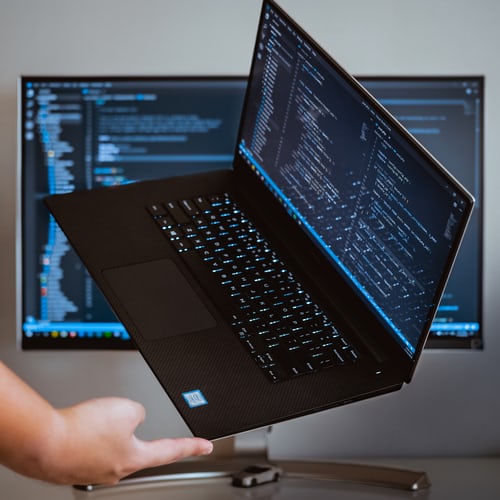Network Security
网络安全代写 Welcome to Spring 2020 Network Security!
Hope you are all staying safe and healthy and ploughing through this bit of rough patch.
Welcome!
Welcome to Spring 2020 Network Security!
Hope you are all staying safe and healthy and ploughing through this bit of rough patch.
The plan is to hold this class during the scheduled hours (MW 10 -12 Noon) albeit remotely. It is not going to be easy as it wasn’t planned as a remote delivery class. But together we can make it work as best as we can.
Current plan is to deliver the lectures over ZOOM. But we may need to adjust based on connectivity and how well ZOOM copes with us.
If you all have any concerns at all please don’t hesitate to reach me via Canvas messages. My e-mail tends to have a lot of backlog – so best to catch me via Canvas messaging.
I am looking forward to learning with you all this Spring!
Course Information 网络安全代写
Time: MW 10:00 AM – 11:50AM
Classroom: Zoom – See Course Schedule
Instructor: Dr. Rakesh Bobba ([email protected])
Office Hours: Mon, Wed 3 – 4PM https://oregonstate.zoom.us/j/350443970 (https://oregonstate.zoom.us/j/350443970)
TA: Arezoo Rajabi ([email protected])
Office Hours: Tue, Wed, Thu 9 – 10 AM (Venue: Zoom 275-659-6615 ) https://oregonstate.zoom.us/j/2756596615 (https://oregonstate.zoom.us/j/2756596615)
Course Objectives
Introductory course on network security with the objective to cover basics of network security. We will explore security issues throughout the network stack: link layer, network
layer, transport layer, and application layer. We will discuss common attack techniques and their defenses. Topics include: Transport Layer Security (TLS), IP Layer Security
(IPSec), HTTP and DNS security, PKI ecosystem relevant to network security, denial
of service (DoS), firewalls, IDS etc.
Ethics, Law and Policy WARNING 网络安全代写
Designing secure systems and defending them requires a security mindset. It requires thinking like an attacker and understanding techniques used to compromise security. But using such techniques in the real-world may violate the law and/or the university’s policies. It may also be unethical to use these techniques. Sometimes, simple probing systems for weaknesses may result in severe penalties that may include failing the class, expulsion, civil fines and even jail time. As a student in this course and at OSU you
must respect the privacy and property rights of others at all times.
The Computer Fraud and Abuse Act (http://www.law.cornell.edu/uscode/18/1030.html) (CFAA), is a federal statute that broadly criminalizes computer intrusion. This is one of several laws that govern “hacking.” Carefully read and understand what the law prohibits. Acting lawfully and ethically is your responsibility!
Pre-Requisites 网络安全代写
Required: ECE or CS 372. Recommended: CS 370
Tentative Evaluation Plan
Labs/Hands-On Assignments (40%)
There will be 4-6 hands-on lab assignments, where you will apply the course concepts. These will be graded on correctness and thoroughness of the writeup. The labs may be open-ended and self-directed at times. You may find it necessary to brush up on some tools and technologies (e.g., wireshark, HTML/JS) on your own. I expect you to be comfortable being resourceful in this way.
Final Project: 35% 网络安全代写
In a team of 3, you will work on a substantial final project that goes in depth into a topic in network security. Final Deliverables: You will build a new tool/document/resource that can be of value to the public at large. You will give a 30-minute in-class presentation that includes a realistic demonstration.This will happen in the last several weeks of the class. Intermediate milestones will be scheduled throughout the term.
Quizzes: 15%
Weekly or bi-weekly low stakes quizzes to make sure you are keeping up. Aim is to not make them stressful. Easy to make and yours to lose points.
Participation: 10%
Course Reading Material 网络安全代写
There is no required text book for this course. Links to reading material for each topic will be posted. But the following books provide a good reference base for many of the topics covered.
Reference Books:
Network Security: Private Communication in a Public World by Charlie Kaufman, Radia Perlman and Mike Spencer
Security Engineering: A Guide to Building Dependable Distributed Systems by Ross Anderson (Available Online Here: http://www.cl.cam.ac.uk/~rja14/book.html (http://www.cl.cam.ac.uk/~rja14/book.html)
Introduction to Computer Security by Matt Bishop Applied Cryptography by Bruce Schneier
Security in Computing by Charles P. Fleeter
Introduction to Computer Security by Michael T. Goodrich and Roberto Tamassia Computer Security: Principles and Practice by William Stallings and Lawrie Brown, 3rd edition.
Forum 网络安全代写
We will be using Piazza for class discussion. Rather than emailing questions to the teaching staff, I encourage you to post your questions on Piazza.
Course Policies
Discussion Participation
Students are expected to participate in class discussions. This includes participating in discussion and interactions during lecture and also in Piazza and other online forums. This also includes in taking part in any quizzes and other polls.
Late Work Policy
Students may get 80% of the credit for work turned in after the due date, but within 48 hours. Submissions 48 hours after the due date will not be graded unless prior permission was obtained. This late policy MAY NOT APPLY to some assignment due before an exams or in situations when the solution has to be posted within 48 hours of the deadline.
Makeup Exams 网络安全代写
Makeup exams will be given only for missed exams excused in advance by the instructor. For example, excused absences will not be given for airline reservations and common ailments. Excused absences will generally not be given after the absence has occurred, except under very unusual circumstances (e.g. serious sickness or injury).
Incompletes
Incomplete (I) grades will be granted only in emergency cases (usually only for a death in the family, major illness or injury, or birth of your child), and if the student has turned in 80% of the points possible (in other words, usually everything but the final paper). If you are having any difficulty that might prevent you completing the coursework, please don’t wait until the end of the term; let me know right away.
Guidelines for a Productive and Effective Online Interactions
Students are expected to conduct themselves in the course (e.g., on discussion boards, email) in compliance with the university’s regulations regarding civility. Civility is an essential ingredient for academic discourse. All communications for this course should be conducted constructively, civilly, and respectfully. Differences in beliefs, opinions, and approaches are to be expected. In all you say and do for this course, be professional.
Please bring any communications you believe to be in violation of this class policy to my attention. 网络安全代写
Active interaction with peers and your instructor is essential to success in this course, paying particular attention to the following:
Read your posts carefully before submitting them.
Be respectful of others and their opinions, valuing diversity in backgrounds, abilities, and experiences.
Challenging the ideas held by others is an integral aspect of critical thinking and the academic process. Please word your responses carefully, and recognize that others are expected to challenge your ideas. A positive atmosphere of healthy debate is encouraged.
Statement Regarding Students with Disabilities 网络安全代写
Accommodations for students with disabilities are determined and approved by Disability Access Services (DAS). If you, as a student, believe you are eligible for accommodations but have not obtained approval, please contact DAS immediately at 541-737-4098 or at
http://ds.oregonstate.edu (http://ds.oregonstate.edu/) . DAS notifies students and faculty members of approved academic accommodations and coordinates implementation of those accommodations. While not required, students and faculty members are encouraged to discuss details of the implementation of individual accommodations.
Expectations for Student Conduct
Student conduct is governed by the university’s policies, as explained in the Student Conduct Code (http://studentlife.oregonstate.edu/code) . Students are expected to conduct themselves in the course (e.g., on discussion boards, email postings) in compliance with the university’s regulations regarding civility.

Academic Integrity 网络安全代写
Students are expected to comply with all regulations pertaining to academic honesty. For further information, visit Student Conduct and Community Standards (http://studentlife.oregonstate.edu/studentconduct) , or contact the office of Student Conduct and Mediation at 541-737-3656.
OAR 576-015-0020 (2) Academic or Scholarly Dishonesty:
- Academicor Scholarly Dishonesty is defined as an act of deception in which a Student seeks to claim credit for the work or effort of another person, or uses unauthorized materials or fabricated information in any academic work or research, either through the Student’s own efforts or the efforts of
- Itincludes:
- CHEATING- use or attempted use of unauthorized materials, information or study aids, or an act of deceit by which a Student attempts to misrepresent mastery of academic effort or information. This includes but is not limited to unauthorized copying or collaboration on a test or assignment, using prohibited materials and texts, any misuse of an electronic device, or using any deceptive means to gain academic
- FABRICATION- falsification or invention of any information including but not limited to falsifying research, inventing or exaggerating data, or listing incorrect or fictitious
-
ASSISTING – helping another commit an act of academic dishonesty. This includes but is not limited to paying or bribing someone to acquire a test or assignment, changing someone’s grades or academic records, taking a test/doing an assignment for someone else by any means, including misuse of an electronic device. It is a violation of Oregon state law to create and offer to sell part or all of an educational assignment to another person (ORS 165.114).
- TAMPERING- altering or interfering with evaluation instruments or documents.
- PLAGIARISM- representing the words or ideas of another person or presenting someone else’s words, ideas, artistry or data as one’s own, or using one’s own previously submitted work. Plagiarism includes but is not limited to copying another person’s work (including unpublished material) without appropriate referencing, presenting someone else’s opinions and theories as one’s own, or working jointly on a project and then submitting it as one’s own. 网络安全代写
Academic Dishonesty cases are handled initially by the academic units, following the process outlined in the University’s Academic Dishonesty Report Form, and will also be referred to SCCS for action under these rules.




